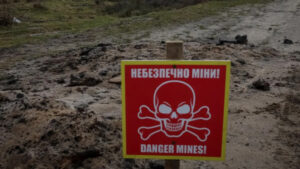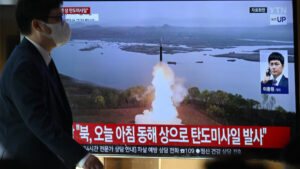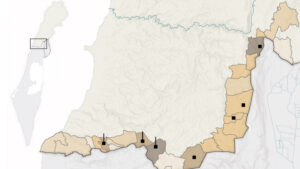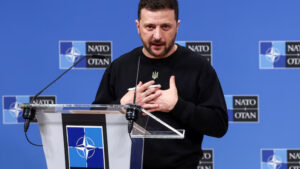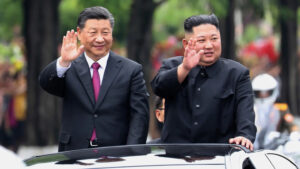World
The U.S. seeks China's help to prevent North Korean troops from fighting for Russia
PUBLISHED THU, OCT 31 2024 12:52 a.m. ET
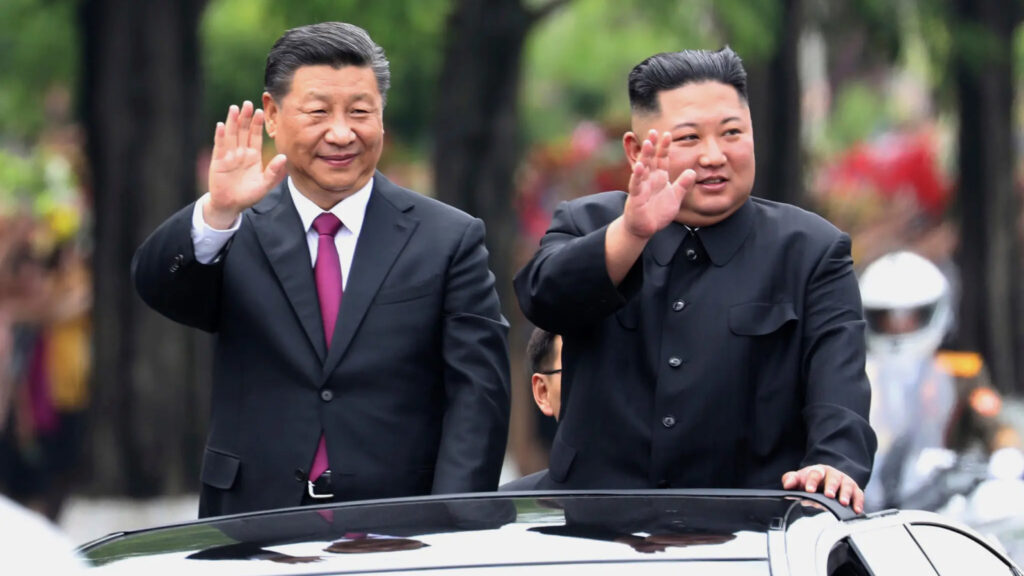
The Biden administration is engaging with an unexpected partner as North Korean troops prepare for combat in support of Russia’s war in Ukraine: China.
U.S. officials are communicating with China to convey their concerns about North Korea, hoping to heighten any unease China might have regarding the troop movements. The U.S. believes China is apprehensive about the strengthening security alliance between Russia and North Korea. While China has long been North Korea’s ally and its primary economic and military partner, the collaboration with Russia means that Beijing must increasingly share its influence over Pyongyang.
North Korea’s involvement in Ukraine also draws Europe deeper into East Asian security matters, a situation that China wants to avoid. Recently, North Korea tested an intercontinental ballistic missile, its first in nearly a year, which has raised alarms globally.
In recent days, the State Department has directly addressed the troop issue with Chinese officials. A senior administration official informed The New York Times that a key meeting occurred on Tuesday, involving Kurt Campbell, the deputy secretary of state, Daniel J. Kritenbrink, the top official for Asia, and James O’Brien, the leading Europe official, who all met with Chinese diplomats for several hours at Ambassador Xie Feng’s residence in Washington.
On the same day, Secretary of State Antony J. Blinken discussed diplomatic efforts with Chinese and other officials during a call with Andriy Yermak, a senior Ukrainian official. At a Thursday press conference, Blinken indicated he expected Russia to deploy North Korean troops into combat soon, labeling them legitimate military targets once engaged.
When asked about the diplomacy regarding troop deployments, Blinken remarked on the recent robust discussions and expressed confidence that China understands the U.S. concerns and the expectations for them to use their influence to curb such actions.
Jake Sullivan, President Biden’s national security adviser, has encouraged U.S. agencies to communicate these concerns to China and emphasize the potential repercussions. The aim is that China might relay this message to North Korean leader Kim Jong-un or persuade him to limit or halt troop deployments.
Before the news of North Korean troop movements became public, Blinken had already addressed the growing North Korea-Russia partnership in conversations with Wang Yi, China’s chief foreign policy official.
China and Russia have been strengthening their ties over the years. In February 2022, Beijing declared a “no limits” partnership with Moscow just before Russia’s large-scale invasion of Ukraine. U.S. officials assert that China is supporting Russia’s war efforts by purchasing oil and engaging in trade that has assisted President Vladimir V. Putin in rebuilding his defense industry amid significant sanctions from the U.S. and Europe.
At first glance, it might seem that China would back North Korean troops fighting alongside Russia against Ukraine. However, China’s stance on the issue remains unclear, and U.S. intelligence is working to discern how Chinese leaders, including Xi Jinping, view the troop deployment, which Biden has described as “very dangerous.”
The Pentagon reported on Monday that North Korea had dispatched 10,000 troops to eastern Russia for combat training, with many moving to western Russia to assist in fighting against Ukrainian forces in the Kursk region. Some of these troops may find themselves engaged in combat in Ukraine.
This situation echoes the Korean War, when China, North Korea, and Russia (then the Soviet Union) opposed U.S.-led forces on the Korean Peninsula. However, that anti-American alliance was less stable than it seemed at the time, and the nature of its modern counterpart remains uncertain.
U.S. officials and analysts suggest that the three nations, despite their Communist roots, are still ideologically aligned against the United States. Yet, they also note that China, as the dominant power in the group, is concerned about the revived alliance between Russia and North Korea, especially as North Korea depends on China to sustain its isolated economy.
Furthermore, analysts warn that China could be angered if European nations become more involved in East Asian security issues—such as Taiwan and the Korean Peninsula—because of North Koreans fighting for Russia in Europe. China opposes the U.S. encouraging its allies in both the Atlantic and Pacific to strengthen their connections.
If tensions arise within China regarding the North Korean troop deployment, U.S. officials intend to take advantage of that discord.
World
Advertise With Us
BVD Newsletters
Sign up for free newsletters and get more BVD delivered to your inbox
Get this delivered to your inbox, and more info about our products and services.
© 2024 BVD LLC. All Rights Reserved.
Data is a real-time snapshot *Data is delayed at least 15 minutes. Global Business and Financial News, Stock Quotes, and Market Data and Analysis.
Market Data Terms of Use and Disclaimers
Data also provided by REFINITY


